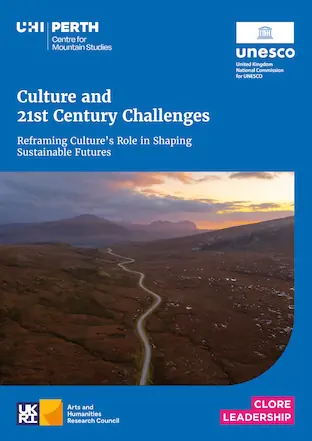
A new report by Matthew Rabagliati, funded by the Arts and Humanities Research Council (AHRC) and Clore Leadership, in collaboration with the Centre for Mountain Studies at the University of the Highlands and Islands, directly addresses this question. Based on 23 interviews with cultural leaders across rural Estonia, Norway, and Scotland, it shows that communities do not view culture as a distinct “sector.” Instead, culture is part of the very system of meaning through which people understand place, belonging, and change.







